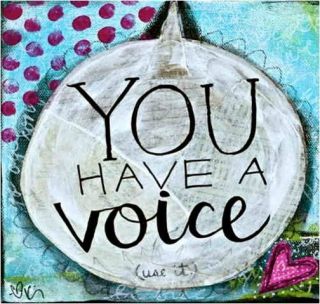
Some people seem to have very little trouble saying what’s on their minds. For those who speak up with sensitivity, forthrightness, and respect, I admire you. For others who speak up but do so in a thoughtless or rude way, I promise I shall write a future blog post for you! But this post is for those who have a hard time just speaking up. I write it because I think that more than a few difficulties in psychological life could be made better with just a few words of honesty, spoken from the heart.
As I work with patients each day, I am often struck by how much they know about themselves and those around them. My patients are often more perceptive and insightful than they think they are. This is even more true after they have a little bit of therapy under their belts. As their own distortions and confusions are sorted out—or, in psychoanalytic-speak, as their own projections are reclaimed—people develop a more accurate view of what is going on with them and with those around them.
With some effort and psychological knowledge, it is not that difficult to get the knack of how people operate. We can learn how to detect when someone in our lives is overreacting—and often we even can guess why. We can learn to see projections more than a few feet away. We begin to see how the past influences the present. We can develop a pretty good understanding of the dynamics in our relationships with our partners, parents, children, bosses, and friends.

The real challenge is to take the next step and do something with it.
At first blush, it is rather perplexing that people don’t often make good use of what they know. I think this comes from a lack of courage. We know what to say, but we’re afraid to say it. We worry that our relationships are too fragile to handle the truth. We don’t want to rock the boat. We don’t want to ruin what little peace we have left. After all—we say to ourselves—we have to work with them, live with them, sleep with them. Better just to keep quiet.
But we all know the problem that ensues. There is no peace in that quiet. The pot of unspoken truth simmers. The feelings stew. The pressure mounts. And then we lose not only our cool but our perspective. When we finally speak up, we spew. And the truth of what we really had to say is lost.
So the key to speaking up—at least as I see it—is to speak up sooner rather than later. Speak up before your feelings take over. Speak up when you are seeing things more clearly.

Many people that I know want to speak up to make their lives and relationships better, but they tell me that they don’t know what to say. I ask them what they would like to say. If they take that question seriously and thoughtfully, they usually come up with something pretty constructive. When they do, I simply say to them, “Say that.” In other words, you know more than you think you know. Say what you know. If you do so with care and concern—if your motive is to be constructive—then at least you will get the conversation started.
Copyright 2012 Jennifer Kunst, Ph.D.
Like it! Tweet it! Comment on it!


